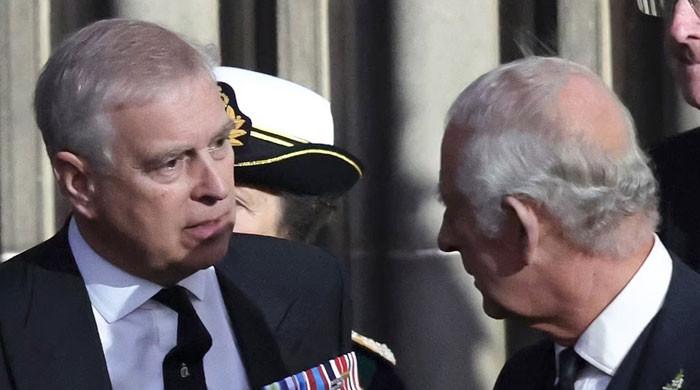King Charles’ reckless move to banish his younger brother Andrew from public life was born of a desire to isolate a weakened monarchy before passing on the crown, but it remains to be seen whether the deep damage can be contained.
Charles stripped Andrew of his princely title, kicked him out of his mansion near Windsor Castle and said he and the Queen were thinking of survivors of abuse, to draw a line under a scandal surrounding his ties to Jeffrey Epstein that has dogged the royals for years.
It marked one of the most dramatic moves against a member of the royal family in modern British history, by a king who is still undergoing regular cancer treatment and whose priority is to shore up support for the monarchy before his eldest son, Prince William, inherits the throne.
But some commentators said the move should have come much earlier.
With Queen Camilla and the king’s sister-in-law Sophie both long-term campaigners against sexual violence, royal author Robert Hardman said Andrew’s ties to the American sex offender increasingly put the royal family on “Team Epstein”, which Charles could not live with.
“He wants to put as much distance between his brother and the monarchy as he can,” said Hardman, the author of Charles III: The Inside Story. Reuters.
ROYALS THROWED ANDREW ASIDE OUT OF PRESERVATION
The royals have tried for years to reject Andrew, the younger brother of Charles and second son of the late Queen Elizabeth, for years fearing he would eat away at the family with the same sense of entitlement and bad behavior that has long lingered around him.
Andrew had once been considered a dashing naval officer who returned from the Falklands War with Argentina in 1982 to greet his mother with a red rose clenched between his teeth.
But in the following decades, the Queen’s supposed favorite son became the focus of much derision as the British press focused on his personal life, dubbing him “Randy Andy” and “Air Miles Andy” for his jet-set lifestyle.
That ridicule turned to disgust when Andrew was revealed to have kept in touch with Epstein after he was jailed for sex crimes in 2008 and when he gave a disastrous interview in which he showed no sympathy for victims of abuse.
Andrew told the BBC’s Newsnight interview that he did not regret his friendship with the American financier because it had had some “seriously beneficial results”.
He abandoned all royal duties in the wake of the interview and was stripped of his military connections and royal patronage in 2022.
That year he also settled a lawsuit brought by Virginia Giuffre, who accused him of sexually abusing her when she was a teenager after being introduced by Epstein.
Andrew had denied ever meeting Giuffre, who died by suicide in April. Her account returned to prominence with the publication of her memoirs this month.
Exile reflects the threat to the royal family
Royal experts said Charles’ actions reflected the threat to the institution after a move earlier this month to prevent Andrew from using his Duke of York title was deemed insufficient.
In recent weeks, Andrew had overshadowed two efforts by Charles to shape cultural and public life – his historic prayer with the Pope at the Vatican and the unveiling of a memorial to LGBT military veterans, which had previously been banned.
“I think the fact that the royal family decided to go against him is a pretty big thing,” said recruiter Anna Hunter, 29, in London on Friday morning.
Giuffre’s brother, Sky Roberts, told BBC Newsnight that he praised the king but said a further investigation was needed. The Rape Crisis charity praised the King and Queen for their commitment to survivors of sexual violence.
But others questioned whether the royals had taken too long to act. “I don’t know if this step is enough to repair the damage that has been done,” Afua Hagan, a journalist and royal commentator, told Reuters.
SUPPORT FOR THE MONARCHY HAS BEEN DECLINING
Support for the institution has been declining over the past decade, with the British Social Attitudes survey showing that 51% of people in the UK thought it was “very important” or “fairly important” for Britain to have a monarchy.
This is the lowest number reported to date and reflects a lack of interest from younger generations.
To their supporters, Britain’s royal family provides stability and continuity in a time of constant political upheaval, serving as a draw for political leaders such as US President Donald Trump.
But to their opponents, a hereditary monarchy that requires subjects to bow is an anachronism that holds the country back while the lives of senior members, such as William and Kate and their three young children, are followed like a soap opera.
Charles will hope his very public defense of his brother, which a royal source said had been backed by Prince William, will help resolve the issue.
“It’s reckless on behalf of King Charles, but it’s also reckless on behalf of Prince William,” said commentator Hagan.



